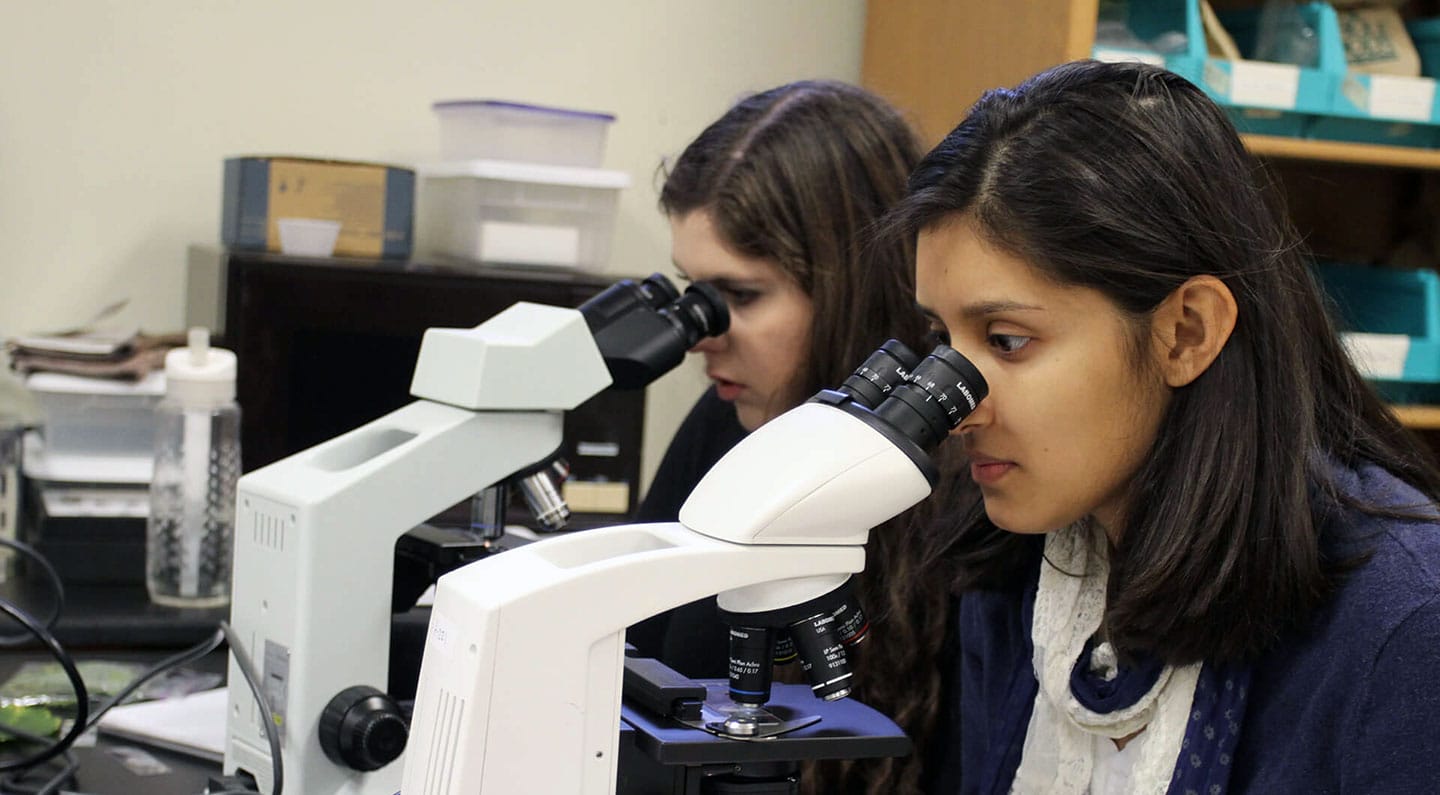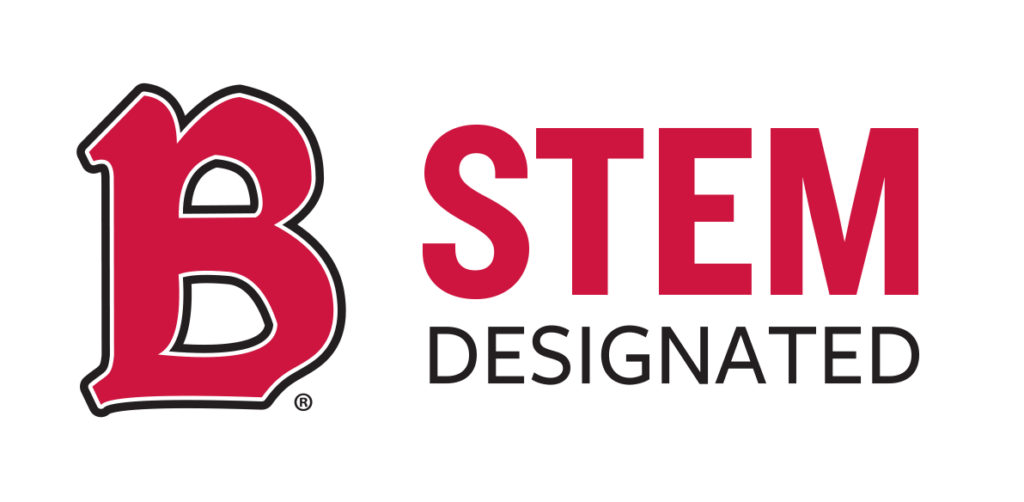Two-Year, Flexible Program
The M.S. in Molecular and Cellular Biology is a 32-34 semester credit hour STEM designated graduate program. STEM designation signifies a program has met an established criteria related to its focus on science, technology, engineering, and math (STEM) topics. It also offers international students the chance to apply to extend their OPT (Optional Practical Training) beyond 12 months (up to 24 months).
The program offers both a thesis (34 credits) and non-thesis (32 credits) track option. Benedictine designed this program as a full-time curriculum to be completed in two years and is made for working professionals who are looking to advance their technical skills within a lab atmosphere. Whether you work in a hospital or clinic, processing lab or pharmaceutical setting, the program is designed to provide enhanced curricular and technical skills for career advancement. Both track options begin every fall semester. The program also allows students to take electives toward the degree from our public health or business programs, whichever best fits their career goals.
Molecular and Cellular Biology Alumni
Students seeking careers in research, academics or industry will receive the right tools and a meaningful path to succeed in their future endeavors. Successful graduates will be able to apply molecular biology techniques to a variety of subdisciplines such as biotechnology, bioinformatics, clinical laboratory sciences, and pharmacology and therapeutics; and code for bioinformatics applications and use common molecular biology databases. They will have vastly improved analytical, critical-thinking and writing skills. Benedictine University graduates at all levels of biology programs have gone on to successful careers at companies such as Walgreens, Baxter, Quest Diagnostics, Blueprint Genetics, and Blistex to name a few!
Here are some courses you may take in the Molecular and Cellular Biology MS program:
- Histology
- Advanced Integrative Human Physiology
- Gross Dissect Anatomy
- Cellular and Molecular Mechanisms of Human Disease
- Genomics and Bioinformatics
Molecular and Cellular Biology MS courses (BIOL)
Lisle graduate courses and descriptions
Hone Your Lab Skills
Students seeking to advance their careers in research, industry, clinical lab sciences or academics, or those who are interested in honing their lab skills will get valuable and marketable experience in our Master of Science (M.S.) in Molecular and Cellular Biology program. The curriculum covers theory and applications, as well as common techniques, and it offers students hands-on lab experiences. Benedictine has woven critical analyses of literature in the field and experiences with scientific writing throughout the curriculum.
The program is best suited for
- Students who wish to obtain a master’s degree after earning their bachelor’s degree and may be considering applying to graduate school. The program offers a hands on, deeper understanding of lab techniques, expanding the student’s scientific knowledge base and experience.
- Students who plan to or are currently employed at a laboratory, industry related, government, or nongovernmental organization, where graduate level coursework would enhance their knowledge, competitiveness, and laboratory skills.


